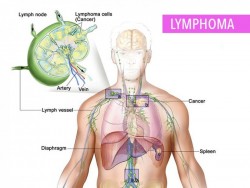
Evidence mounts that an eye scan may detect early Alzheimer's disease
Two new studies suggest signs of the disease are visible in the eyes before symptoms appear
Results from two studies show that a new, non-invasive imaging device can see signs of Alzheimer's disease in a matter of seconds. The researchers show that the small blood vessels in the retina at the back of the eye are altered in patients with Alzheimer's. Even patients who have a family history of Alzheimer's but have no symptoms show these telltale signs. And they showed that they can distinguish between people with Alzheimer's and those with only mild cognitive impairment. Results from these studies are being presented at AAO 2018, the 122nd Annual Meeting of the American Academy of Ophthalmology.
A new kind of precise and non-invasive imaging called optical coherence tomography angiography (OCTA) has assisted much of the recent research on the eye's connection with Alzheimer's. It enables physicians to see the smallest veins in the back of the eye, including the red blood cells moving through the retina.
Because the retina is connected to the brain by way of the optic nerve, researchers believe that the deterioration in the retina and its blood vessels may mirror the changes going on in the blood vessels and structures in the brain, thereby offering a window into the disease process.

Diagnosing Alzheimer's is a currently a challenge. Some techniques can detect signs of the disease but are impractical for screening millions of people: Brain scans are expensive and spinal taps can be harmful. Instead, the disease is often diagnosed through memory tests or observing behavior changes. By the time these changes are noticed, the disease is advanced. Even though there is no cure, early diagnosis is critical as future treatments are likely to be most effective when given early. Early diagnosis would also give patients and their families time to plan for the future.
The goal of this latest research is to find a quick, inexpensive way to detect Alzheimer's at the earliest signs.
Researchers at Duke University used OCTA to compare the retinas of Alzheimer's patients with those of people with mild cognitive impairment, as well as healthy people. They found that the Alzheimer's group had loss of small retinal blood vessels at the back of the eye and that a specific layer of the retina was thinner. Even people with mild cognitive impairment did not show these changes.
Ophthalmologist and lead author Sharon Fekrat, M.D., professor of Ophthalmology at Duke, along with colleague Dilraj Grewal M.D., associate professor of Ophthalmology at Duke, and their research team expect that their work will have a positive impact on patient's lives.
"This project meets a huge unmet need," Dr. Fekrat said. "It's not possible for current techniques like a brain scan or lumbar puncture (spinal tap) to screen the number of patients with this disease. Almost everyone has a family member or extended family affected by Alzheimer's. We need to detect the disease earlier and introduce treatments earlier."

Because genes play a significant role in how Alzheimer's disease begins and progresses, another team of researchers from Sheba Medical Center in Israel examined 400 people who had a family history of the disease but showed no symptoms themselves. They compared their retina and brain scans with those who have no family history of Alzheimer's.
They found that the inner layer of the retina is thinner in people with a family history. The brain scan showed that their hippocampus, an area of the brain that's first affected by the disease, had already begun to shrink. Both factors, a thinner inner retina layer and smaller hippocampus, were associated with scoring worse on a cognitive function test.
"A brain scan can detect Alzheimer's when the disease is well beyond a treatable phase," said lead researcher Ygal Rotenstreich M.D., an ophthalmologist at the Goldschleger Eye Institute at Sheba Medical Center. "We need treatment intervention sooner. These patients are at such high-risk."
 What Happens When You Quit Smoking – A Timeline
What Happens When You Quit Smoking – A TimelineEvery year more than 7 million people die as a result o...
 Types Of Yoga, Which One Is Best For You?
Types Of Yoga, Which One Is Best For You?There are two types of people in the world - those who ...
 10 Amazing Health Benefits Of Apricot Juice
10 Amazing Health Benefits Of Apricot JuiceOriginally from China, the use of apricots began almost...
 Cheap & Healthy Shopping List for Students
Cheap & Healthy Shopping List for StudentsCheap & Healthy Shopping List for StudentsStaying o...
 This Honey, Lemon And Cinnamon Drink Will Help You Lose Pounds In A Week
This Honey, Lemon And Cinnamon Drink Will Help You Lose Pounds In A WeekThe most effective way to lose weight is to do aerobic ...
 What You Need To Know About Lymphoma
What You Need To Know About LymphomaLymphoma is a cancer of the lymphatic system. It affect...
 This Honey, Lemon And Cinnamon Drink Will Help You Lose Pounds In A Week
This Honey, Lemon And Cinnamon Drink Will Help You Lose Pounds In A WeekThe most effective way to lose weight is to do aerobic ...
 Colon Cancer: Could Exercise Halt Tumor Growth?
Colon Cancer: Could Exercise Halt Tumor Growth?New research published in the Journal of Physiology sug...